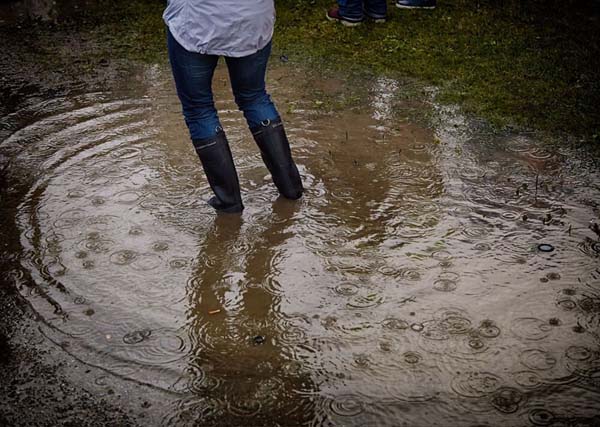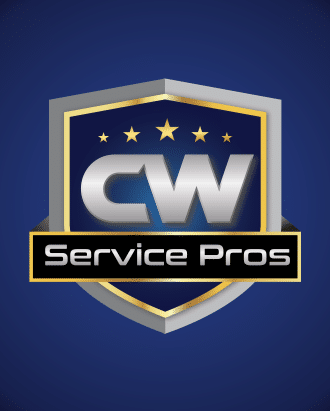Water damage can be serious. Whether from a burst pipe or bad weather, it needs to be dealt with quickly to avoid more lasting damage to your home, such as mold. Does your homeowner’s insurance cover water damage? If it doesn’t, how can you find coverage that does? Here’s what you need to know about water damage and their coverage, insurance options, riders, and more.
Are you currently dealing with a water emergency in your home? It’s important to act fast. Get in touch with us by calling 972-395-2597 now.
Why Is Homeowners Insurance Important? + Important Terms
Sadly, no one can tell when things are about to go wrong, especially with your home. You could be the victim of a theft. An accidental fire could do damage. Or your water heater may burst. Many home insurance policies will help to cover these three events and more.
There are a few home insurance terms you should know before you begin your search for home insurance:
- Actual cash value – A method of valuing insured property by subtracting depreciation from the cost of replacement
- Claim – What you, the homeowner, makes to ask for payment of benefits provided by your insurance company
- Peril – Different types of damage, including damage from fires and storms
- Rider (also known as an endorsement) – An attachment to your insurance policy that changes or alters coverage
Does Homeowners Insurance Cover Water Damage?
There are several different types of water damage your home could experience, like:
- Sewer backup
- Overflow
- Discharge
- Floods
- Leaks or gradual damage
It’s important to understand the kinds of water damage and how they relate to your insurance policy when opening a claim. Some types of damage will not be covered by your policy.

Is Sewer Backup Covered by Homeowners Insurance?
A sewer backup, or a water backup, within the home can be a serious threat, not only to your home and plumbing, but also to your health. The water that rises out of a sewer can contain waste and be unsanitary, causing thousands of dollars in damage. It must be dealt with immediately to keep the damage to a minimum.
A backup from your sewer may be caused by a few different things, including:
- Tree roots
- Blockages in the sewer line
- Older sewer lines that should be replaced
- Debris
- Sudden water flow
Most home insurance policies do not automatically include sewer backups in the policy. That will require a rider. It is absolutely recommended.
Is Overflow or Discharge Covered by Homeowners Insurance?
Have you ever worried you left the water running in the sink? Or the tub? Sometimes referred to as “overflow,” this can cause extensive damage. Have you ever worried about coming home to your water heater having given out or wondered if a frozen pipe will burst and discharge? If it does, are you covered?
Both overcharge and discharge are known as “sudden and accidental” and not usually wear-or-tear issues. This can be important to know when dealing with insurance companies, as most policies will cover damage from overflow and discharge that arise from accidents, burst plumbing, and similar incidents.
It’s important to note that you are responsible for caring for and maintaining your home and plumbing. If you leave for vacation in winter, you don’t take steps to protect your pipes from freezing, and they burst, your claim may be denied. Keeping on top of your plumbing system’s maintenance is a must.

Get Annual Maintenance
With a Gold Membership
Is Flood Damage Covered by Homeowners Insurance?
When talking about flood damage, it’s important to understand how insurance companies define floods. While many people may talk about how their water heater closet flooded after their appliance burst, it is not the same as a flood caused by rainfall or a river, according to your insurance company’s definition. The best way to define it is to think of a flood claim as a body of water that overflows so high that it enters your home.
Flood damage is never covered by homeowners insurance, and it’s highly recommended that you purchase an additional policy to cover yourself in the event of a flood, especially if you live in an area where it’s likely or a specifically deemed flood zone.
Wondering if you’re in a flood zone? Use this flood map from FEMA. Since North Texas is subject to tornadoes and severe thunderstorms, it’s important to check your risk, especially before purchasing a new home.
Are Leaks Covered by Homeowners Insurance?
Leaks, also known as seepage or gradual damage, are a very common form of water damage that homeowners have to deal with on a regular basis. Whether it’s from a pipe or a sink faucet, over time, this water can cause extensive damage to your home.
Usually, if your water damage is from a leak that lasts a while, it will not be covered by homeowners insurance. Most insurance policies will only cover the damage if it is “sudden and accidental” as mentioned previously. However, your claim will depend on the exact wording of the policy so you will want to do your research into what is and what isn’t covered by your insurance.
Best Homeowners Insurance Options
There are a lot of things you should be looking for in a comprehensive homeowners insurance policy, but it’s important to note that you shouldn’t rely on what your neighbors need for your own home. While they can be great resources to ask for advice, your needs may ultimately be different from theirs.
You have a few different options when it comes to home insurance:
- HO-1 – This is not commonly chosen anymore, but it covers basic threats like fire, hail, theft, and lightning.
- HO-2 – Similar to HO-1, this policy is broader and covers more risks, including accidental discharge and overflow, HVAC freezing, and more.
- HO-3 – This is a common choice that protects against perils but will have some exclusions and exceptions.
- HO-5 – This policy is generally recommended for new homes, but it will also have exclusions and exceptions.
- HO-6 – This is a policy for condos and co-ops.
- HO-7 – This is a policy for mobile homes.
- HO-8 – Although similar to a HO-2 policy, the HO-8 will only cover actual cash value of a home.
- Riders – Riders can be added to your home insurance policy for things like jewelry, instruments, fine art, other personal property, flood coverage, and more.
Your home insurance needs depend on your home, budget, property, and more. It’s recommended that you shop around a bit to find the quote that best works for you.
However, it’s important to note that homeowner insurance companies can change your policy and tend to every year. Usually your insured amount will change from year to year to account for changes in value of your property. The company can also change coverage, which includes adding amendments or declarations and sometimes removing coverages, but you will usually be notified of these changes.
Deductibles may also change from year to year, but they cannot change without your agreement. If your deductible suddenly rises, it might be best to shop around for other options. Your needs also matter and it’s a good idea to regularly review your policy to make sure it’s keeping up with your life.
What Happens After You Submit a Claim?
An insurance can submit a claim to your provider on your behalf, but you may also call your provider to report a claim or do it online. Beyond the initial report, your insurance agent won’t typically be involved in the claims process unless they need to step in because you’re experiencing a significant delay or issues with your claim.
You should always submit a claim as soon as you become aware of water damage. Once you or your insurance agent submit a water damage claim, the first thing a provider typically does is schedule a remediation company to come out and dry out your house, removing any standing water to avoid mold growth. You can also schedule remediation services prior to submitting a claim.
Once your claim is reported, you will be assigned an adjuster, who will contact you in 24 to 48 hours. The adjuster will ask you to choose a plumbing contractor to assess the damage. It is recommended that you schedule that inspection so both the outside adjuster and the contractor are present. The plumbing contractor will inspect your home and provide an estimate to you and your adjuster. Some insurance companies have a list of preferred vendors, but it’s ultimately your choice what contractor you use.
Once the plumbing contractor provides an estimate, the adjuster will review and make adjustments if necessary. Once the estimate is approved, the plumbing contractor begins repairs. If the contractor discovers additional damage during the repair process, they’ll need to document it with photos and submit a supplemental payment request. The insurance company may need to schedule another inspection to review the additional damage. Oftentimes, there are two adjusters on a claim – an inside and outside adjuster, and there is always a supervisor or supervisors within the claims department that may be called upon should the adjuster(s) fail to perform their duties or if there is a disagreement.
Note: Methods and processes may vary depending on your insurance carrier.
What Should You Be Covered for in North Texas?
The Texas Department of Insurance has a few tips when it comes to home insurance and riders for those living in North Texas.
- List the items you own – This will make filing claims much easier in the future. Be sure to update your list regularly. You could also make a video record of your belongings to prove what existed prior to a catastrophe.
- Purchase flood insurance – You can purchase flood insurance from the National Flood Insurance program. If you have a mortgage and live in a flood zone, your lender will require you to have flood insurance.
- Consider windstorm and hail insurance – While hurricanes are not a direct threat to North Texas, the area is subject to bad storms from time to time. If your policy doesn’t cover windstorm or hail damage, you will want to get a rider.
Water damage is absolutely no joke and it can be a nightmare to repair the home and deal with an insurance claim. However, having the right homeowners insurance for water damage can make a huge difference down the road and make getting an approved claim much easier.
You can find a homeowner policy comparison tool here: https://www.opic.texas.gov/resources/policy-comparison-tool/
If your home has experienced water damage, whether from a burst pipe, a leak, or a sewage backup, we’re here to help. We offer appointments as well as 24/7 emergency service. Feel free to call us at 972-395-3597 any time, day or night.

















